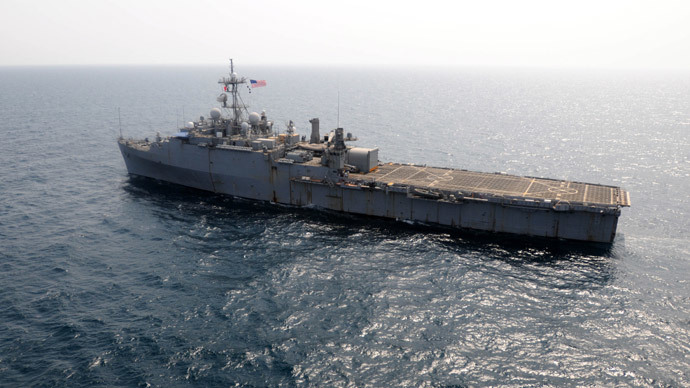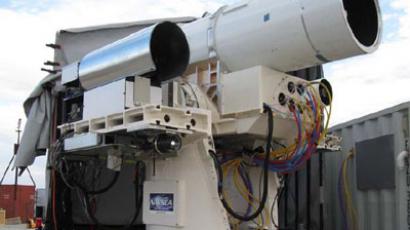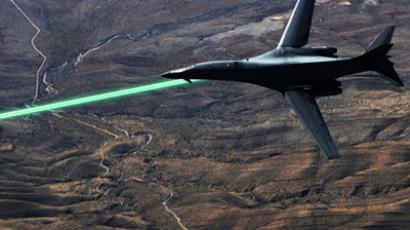Navy readies to deploy first warfare laser onboard USS Ponce this spring

The United States Navy is looking to finally make its highly-touted laser technology a reality this summer, when it will deploy its first laser weapon on a warship.
In fact, the Navy’s laser weapon has progressed far enough that when it’s deployed and tested on the USS Ponce, it can be controlled by a lone sailor.
Meanwhile, the Navy also plans to outfit one of its ships with an electromagnetic rail gun within two years. Speaking to the Associated Press, Navy Capt. Mike Ziv, a program manager at the Naval Sea Systems Command, said making these technologies operational “fundamentally changes the way” the United States conducts warfare.
The solid-state Laser Weapons System, for example, would allow the navy to effectively neutralize threats such as aerial drones and swarm boats by shooting them with a beam of intense heat and destroying their internal parts. Electromagnetic rail guns, meanwhile, could potentially replace traditional guns with a system that fires GPS-guided projectiles up to seven times faster than the speed of sound.
Perhaps even more importantly, these new weapons systems – particularly the lasers – would be far cheaper to operate than current technology. As RT reported last year, a single Tomahawk missile costs the United States $1.4 million dollars. A laser could bring prices down to a few dollars a shot – and, unlike one-and-done missiles, a laser could be fired continuously.
Still, at this point the military benefits are simply conjecture, since problems remain with both systems. Lasers typically become much less effective when the weather turns sour, meaning that rain or dust storms could severely shorten their range. Loren Thompson, a defense analyst at the Lexington Institute, told the AP that while the Navy claims to have figured out how to operate lasers in poor weather, the weapon’s range would likely still shrink.
The electromagnetic gun, on the other hand, requires so much power to operate that none of the Navy’s current crop of ships can actually benefit from its existence. The Navy’s massive new destroyer, the $3.5 billion USS Zumwalt, is the only vessel that will be capable of using such a weapon, though it’s still under construction. The technology used in the Zumwalt class of destroyers is expected to eventually make its way into other Navy vessels.
Despite the hurdles that still need to be cleared, the US intends
to move forward with these projects. Since 2005, the military has
invested $240 million into the rail gun project, and its laser
systems are reportedly further ahead of schedule than those being
developed by other countries.
"It's fair to say that there are other countries working on this technology. That's safe to say,” Ziv told the AP. “But I would also say that a lot of what makes this successful came from the way in which we consolidated all of the complexity into something that can be operated by (a single sailor).”














